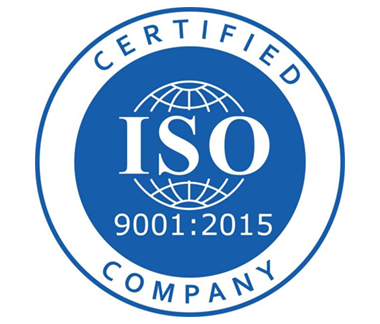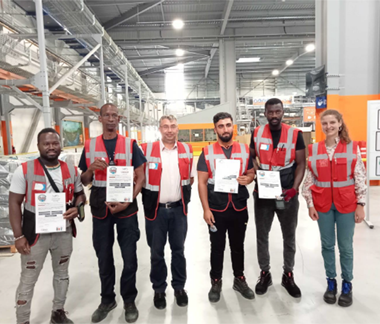What innovations are there for road freight transport?
Road freight transport (RFT) is an essential part of the logistics chain. In 2021, it represented more than 89% of all land transport in France, according to a study by the Ministry of Ecological Transition. With a turnover of nearly €200 billion in 2020 in France, the road freight transport sector faces major challenges in offering consumers an ever more qualitative service.
In the face of widespread digitalisation, particularly in the industrial sector with Industry 4.0, transport companies must increase their efforts to reinvent themselves constantly and to adopt new practices at the cutting edge of technological innovation.
Paperless and automated procedures, autonomous vehicles, artificial intelligence, future energies: discover with Viaposte the latest innovations in road freight transport and their numerous advantages!
Why integrate new technologies in road freight transport?
Road freight transport issues
In perpetual motion, road freight transport represented 10% of France's GDP in 2020. Faced with a growing demand for goods to be transported, transport companies are faced with increasing competitiveness, forcing them to adapt their activity to what the competition is offering.
Greater reactivity in processing requests, ever faster delivery times, harmonisation of processes: a race for performance is therefore underway between road haulage companies with the aim of offering the best service to customers while keeping the company’s productivity at optimum levels.
Benefits of new technologies in road freight transport
Serving the interests of both the company and its customers, technological innovations integrated into the organisation of a road haulage company generate :
> better performance;
> faster delivery times;
> increased well-being of the driver and the company's employees;
> better organisation of the different transport flows to meet the most urgent demands;
> time and cost savings for the company;
> a significant reduction in the carbon footprint of road freight transport.
New technologies: the future of road freight transport
Integrating technological innovations into a transport company has many benefits for both the company's performance and the environment!
Technological innovations for the planet
> Green fuels for greener road transport
123.3 million tonnes of CO2 emissions from road transport were released into the atmosphere in 2019. With environmental issues at the heart of the government's agenda, green or biofuels are becoming more widespread in road freight transport.
This ecological alternative comes in several forms:
> ED95 fuel made from 90% ethanol, an ethyl alcohol of vegetable origin. This concept is fairly recent in France, but has been widely used in Sweden for several years;
> compressed Natural Gas (CNG) and Liquefied Natural Gas (LNG), which are more environmentally friendly and less expensive than conventional fuel. Viaposte has made its first gas refuelling station near Paris official. CNG and LNG are used for two purposes on gas engines in refrigerated trucks: to run the vehicle and to ensure that the cold chain functions properly;
> bio-diesel from recycled vegetable oils or animal fats;
> the hybrid engine: a mix of electric and thermal fuel offering up to 30% reduction in greenhouse gas emissions and up to 20% savings on fuel costs;
> the fuels of the future, currently under development: the sectors of the future resulting from the transformation of agricultural and forestry residues or industrial waste. The aim is to offer energy recovery from biomass;
> Other energies are also the subject of research and development by manufacturers, such as electric or hydrogen based on decarbonised electricity, but remain very confidential in the transport sector at present, because recharging solutions are not sufficiently developed, or approvals are slow to be obtained.
> Training drivers and transporters in eco-driving
Similarly, the road haulage company can offer eco-driving training to each driver responsible for the delivery of orders. This training consists of helping the driver to maintain a constant speed and to limit untimely acceleration or braking to reduce CO2 emissions. Training organisations such as AFTRAL (Apprendre et se Former en TRAnsport et Logistique) provide numerous workshops for novice and professional transporters.
GPS geolocation with the combination of artificial intelligence, machine learning and predictive traffic analysis can support the professional transporter in the correct implementation of this eco-driving training by allowing him to anticipate traffic jams and diversions on the road.
Technological innovations for driver safety
Innovations in road freight transport are working to provide greater safety and comfort for the driver:
> more professional accessories: latest generation smartphones to receive work orders and roadmaps or to take photos of proof of delivery of goods, connected scanners for faster management of goods flows;
> in-vehicle driver assistance systems (ADAS) such as the Michelin QuickScan, a professional ground-based scanner that measures tyre pressure and alerts the driver to any problems, event data recording or intelligent speed adaptation. Driver training in these features is sometimes required;
> automation of certain time-consuming tasks: electronic consignment note (CMR), electronic delivery notes, reports, etc. ;
> better security of customer-sensitive data with digitisation.
Technological innovations for performance
Automation in the road haulage sector is gradually gaining ground and is not sparing the driver's role. Recently, autonomous driving of vehicles has been on the rise. With the aim of reducing road accidents and labour and fuel costs, autonomous vehicles already used for short-distance freight transport and are beginning to extend their capabilities to longer freight routes.
To take things a step further, a brand-new experiment is being conducted on the vehicle fleets of road haulage companies: platooning. By means of vehicle-to-vehicle (V2V) communication and driving assistance systems, the lead vehicle is connected to the others and communicates road hazards in real time. The result is better management of the flow of goods, with instantaneous monitoring of deliveries and truck loads, and greater safety for each driver.
Viaposte: a committed partner for greener freight transport
Our company has a solid team of professionals at your service for all types of goods transport, including palletised courier services, transport of goods in batches or complete loads, and urgent or one-off freight transport. Aware of the fundamental role of new technologies for better business management, our company has been able to develop its fleet of vehicles and those of its partners by equipping itself with the energies of the future: Compressed Natural Gas (CNG), Liquefied Natural Gas (LNG), electric hybridization, Biogas or hydrogen.
Dive into the heart of our Logistics, Industrial Maintenance and Transport activities and discover our company's commitments to greener road freight transport!







